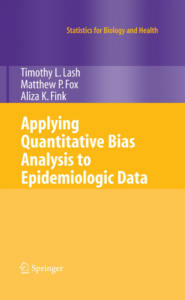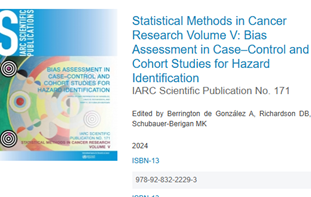Workshop A
Quantitative bias analysis in epidemiologic data
Richard MacLehose (UM. USA) & Matthew Fox (UB, USA)
Students of epidemiology are well versed in ways to reduce systematic error (bias) in the design of their studies and to describe random error in the analysis of their studies using confidence intervals. However, other than with measured confounders, students are rarely taught methodologies for quantifying systematic error in their studies. Quantitative bias analysis (QBA) provides a methodology for assessing the impact of bias on study results by making assumptions about the structure of the bias and bias parameters. QBA allows for assessment of both the direction and magnitude of systematic error and gives an estimate of effect (or a series of estimates of effect) that would have occurred had the bias been absent, assuming the bias parameters are correct. Such analyses allow investigators to go beyond qualitative speculation about the bias in the discussion section of manuscripts and can be a powerful tool for quantifying the impact of such biases.
This workshop on QBA will cover simple bias analysis methods that can be used to gain a better understanding of the impact of selection bias, confounding, and misclassification on study results. These methods can be applied to nearly any dataset, even summary data (such as contingency tables) presented in the literature. Such approaches lay the foundation for more complicated methods, but by themselves, they act as if the bias parameters are known with certainty. We will then continue with probabilistic bias analysis, which requires specification of probability distributions about the bias parameters and then uses Monte Carlo simulations methods to create intervals accounting for the uncertainty in the systematic error, for biases due to misclassification. Finally, we will finish with methods for combining the systematic errors to create simulation intervals that account for the total error (systematic and random) in the study results.

Richard MacLehose, PhD, is a Professor in the Division of Epidemiology and Community Health at the University of Minnesota. His methodologic research interests involve quantitative bias analysis and development of Bayesian methods (often with application to bias analysis). He is a co-author of the leading textbook on these methods, Applying Quantitative Bias Analysis to Epidemiologic Data. Dr. MacLehose also works on applied epidemiologic research ranging from cardiovascular disease to occupational epidemiology to randomized trials of interventions to improve indigenous health.
Matthew Fox, DSc, MPH, is a Professor in the Departments of Epidemiology and Global Health at Boston University. Dr. Fox joined Boston University in 1999. His research interests include treatment outcomes in HIV-treatment programs, infectious disease epidemiology (with specific interests in HIV and pneumonia), and epidemiologic methods. Dr. Fox works on ways to improve retention in HIV-care programs in South Africa from the time of testing HIV-positive through long-term treatment. As part of this work, he is involved in analyses to assess the impact of changes in South Africa’s National Treatment Guidelines for HIV.

Dr. Fox also does research on quantitative bias analysis and co-authored a book on these methods, Applying Quantitative Bias Analysis to Epidemiologic Data. He is also the host of a public health journal club podcast called Free Associations designed to help people stay current in the public health literature and think critically about the quality of research studies and a podcast on Epidemiologic Methods called SERious Epi.



